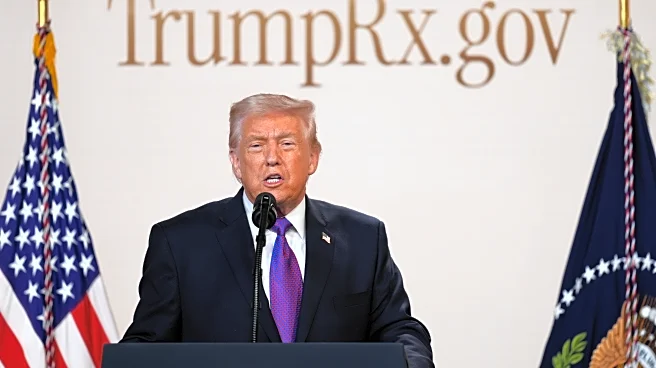What is the story about?
What's Happening?
The U.S. stock markets have continued their upward trajectory, reaching record highs despite the ongoing government shutdown and weak job market data. Investors remain optimistic, with all three major stock indexes hitting new peaks. The government shutdown, now in its second day, has not deterred market enthusiasm, even as Treasury Secretary Scott Bessent warned of potential economic impacts. The job market is showing signs of strain, with year-to-date hiring down 58% compared to the previous year, marking the lowest level since 2009. Despite this, the unemployment rate remains steady at 4.34%, according to data from the Chicago Federal Reserve. This situation aligns with Federal Reserve Chair Jerome Powell's description of the economy as 'low fire, low hire.'
Why It's Important?
The continued rise in stock markets amidst a government shutdown and weak job data highlights investor confidence in the resilience of the U.S. economy. This bullish sentiment is significant as it suggests that market participants are focusing on long-term growth prospects rather than short-term disruptions. The performance of major companies like Nvidia, which reached an all-time high, and Intel, which has seen substantial gains, further underscores the strength of the tech sector. However, the decline in hiring raises concerns about the broader economic recovery and labor market health. The situation presents a mixed picture, with potential implications for future monetary policy and economic strategies.
What's Next?
As the government shutdown continues, its impact on economic growth and market stability will be closely monitored. Investors and policymakers will be watching for any developments that could alter the current bullish market sentiment. The Federal Reserve's approach to interest rates and economic support measures will also be pivotal in shaping future market dynamics. Additionally, the upcoming earnings season could provide further insights into corporate performance and economic resilience.
Beyond the Headlines
The current market conditions may lead to increased scrutiny of the disconnect between stock market performance and underlying economic indicators. This divergence raises questions about the sustainability of the bull market and the potential for future corrections. The situation also highlights the importance of diversified investment strategies and the need for policymakers to address structural economic challenges, such as labor market weaknesses and fiscal policy constraints.
















